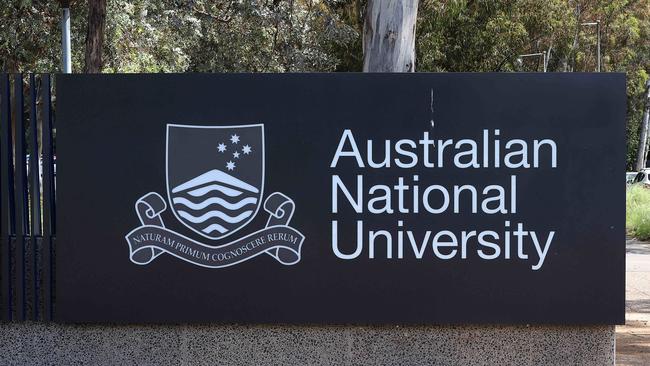Scathing review into ANU medical college finds widespread harassment, bullying, sexism
The review found widespread bullying, sexism, racial discrimination and nepotism, with one interviewee calling the system ‘dehumanising’.

A scathing report of the Australian National University’s college of health and medicine found widespread bullying, sexism, racial discrimination, and nepotism, with one person describing it as “dehumanising” to ask repeatedly for help against harassment.
The review into gender and culture at the ANU College of Health and Medicine and its related schools including the School of Medicine and Psychology, undertaken by Professor Christine Nixon, found that a poor culture “exists and has existed for many years” and that “no effective steps have been taken to address ... failures” of sexism and racial discrimination.
The ANU College of Health and Medicine became part of a new College of Science and Medicine this year in the university’ $250 million restructure. The review also looked at the John Curtin School of Medical Research, which Professor Nixon drew particular attention to.
“I urge the University leadership to give significant thought to the future of the John Curtin School of Medical Research in particular, and what kind of institution should carry forward the John Curtin name,” she wrote.
Professor Nixon interviewed 83 current and former staff and students and received 67 submissions, and said that “staff describe a deeply dysfunctional culture across the College and the broader University marked by bureaucracy, territorialism, bullying, entitlement and resistance to change”.
She found that “harassment and bullying of both staff and students are widespread practices and must be eliminated” and that there appeared “to be little or no consequences for these behaviours”, and that systems of appointing staff facilitate nepotism and abuse.
The ACT Division of the National Tertiary Education Union said the problems described in the Nixon review, while acute in these medical schools, existed across the entirety of the University.
One person, speaking about bullying and harassment, said: “I asked, and asked, and asked for help. The system is dehumanising.”
Professor Nixon said, in the review, that “ANU has a remarkable tolerance for poor behaviour and bullying.”
“The strongly hierarchical nature of academic institutions, structural power imbalance in supervision relationships and impact of a shrinking pool of research funding are all contributing factors.
“However, the most significant factor perpetuating this environment is that at ANU, poor behaviour doesn’t lead to negative consequences” and that concerns are sometimes “dismissed or diminished” by someone with a longstanding connection to the perpetrator.
Speaking about their experiences of gender bias, one interviewee said: “Women leave and men don’t understand why.”
“It was certainly striking to realise that some supervisors do not yet understand that it is inappropriate to form personal or sexual relationships with students under their supervisory authority,” Professor Nixon wrote, under the heading on how “poor systems of work” contribute to exploitation, discrimination and bullying.
Addressing the “disrespectful culture”, Professor Nixon said: “In some cases, participants expressed that harm had been compounded by a response from the University that did not meet their expectations. The issues were generally described as a lack of accountability by senior staff, and a lack of transparency in process and outcomes.”
One interviewee told the review: “I still get anxiety and wake up in the middle of the night thinking about my experiences, and the pit of despair that it made me feel.
“The part that still infuriates me to this day is that senior staff were aware of some of these behaviours, and they did nothing. To my knowledge, no one was reprimanded, no one was fired. This has crushed any faith I had that institutions will act to prevent and punish disgusting behaviours,” the person continued.
The review made 17 recommendations, including to make structural adjustments to help prevent bias and “improve transparency and consistency of complaint investigations and outcomes”.
National Tertiary Education Union (NTEU) ACT Division Secretary Dr Lachlan Clohesy said “while the issues described may have been particularly acute in the Schools reviewed, these are problems that exist across the entirety of the University”.
“We have supported countless members to deal with the aftermath of some of the behaviours described. This is not limited to the Schools reviewed,” he said.
“When you have a culture of fear and intimidation that starts at the top, a Vice-Chancellor threatening to hunt people down, and a Chancellor who describes staff as inefficiencies, staff are understandably sceptical that cultural change is possible with the current leadership.”
“The report lays bare inaction for many years, including under the former Vice-Chancellor Brian Schmidt and for the entirety of Julie Bishop’s term as Chancellor.”
On Tuesday afternoon, ANU shared the report with the school community.
Vice-Chancellor Genevieve Bell said the University has already implemented some of the recommendations and would “address every recommendation”. A Nixon Implementation Steering Group, chaired by ANU’s Provost Professor Rebekah Brown, who commissioned the report, will also be established.
“I know that many members of our community work hard every day to ensure ANU is a place that is inclusive and welcoming. But I also know, in some cases, we have fallen short as an institution, and we have let our people down,” Dr Bell said.
“To all of the students and staff who have been affected by these behaviours and this culture over many years, we at ANU say sorry.”



